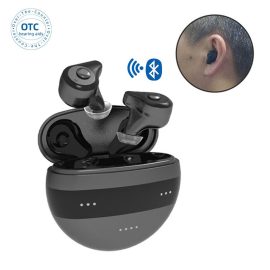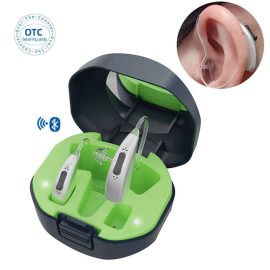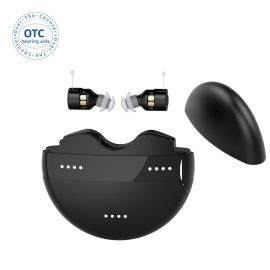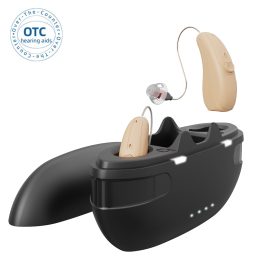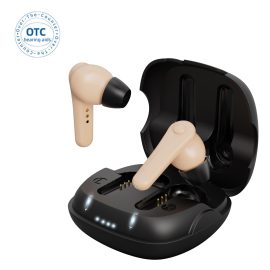OTC Hearing Aids
An Over-the-Counter (OTC) hearing aid refers to a type of hearing device that is available for purchase directly by consumers without the need for a prescription or professional consultation. Unlike traditional hearing aids, which typically require an audiologist or hearing care professional’s involvement in the fitting and customization process, OTC hearing aids are designed to be self-fit by the user.
In the United States, the regulatory landscape for OTC hearing aids has changed with the passage of the Over-the-Counter Hearing Aid Act of 2017. This legislation directed the U.S. Food and Drug Administration (FDA) to establish a category of OTC hearing aids, aiming to increase accessibility and affordability of hearing devices for individuals with mild to moderate hearing loss.
Key points about OTC hearing aids include:
1. Availability: OTC hearing aids are intended to be available for purchase directly by consumers from retail locations, online, or over the counter without the need for a medical prescription.
2. Target Audience: OTC hearing aids are generally designed for individuals with mild to moderate hearing loss. They may not be suitable for those with more severe hearing impairments.
3. Self-Fitting: Users are expected to self-fit OTC hearing aids, adjusting settings such as volume and possibly other parameters without the guidance of a professional.
4. Cost and Accessibility: The goal of OTC hearing aids is to make hearing assistance more affordable and accessible to a broader population by eliminating the need for professional consultations.
5. Regulation: The FDA has been tasked with developing regulations for OTC hearing aids to ensure safety and efficacy. These regulations include labeling requirements and standards for product performance.
It’s important for individuals considering OTC hearing aids to be aware of their specific hearing needs, understand the limitations of self-fitting, and be aware of any regulatory guidelines in their region. Additionally, seeking professional advice before choosing a hearing solution is recommended, as a comprehensive evaluation by an audiologist can provide valuable insights into individual hearing requirements.

